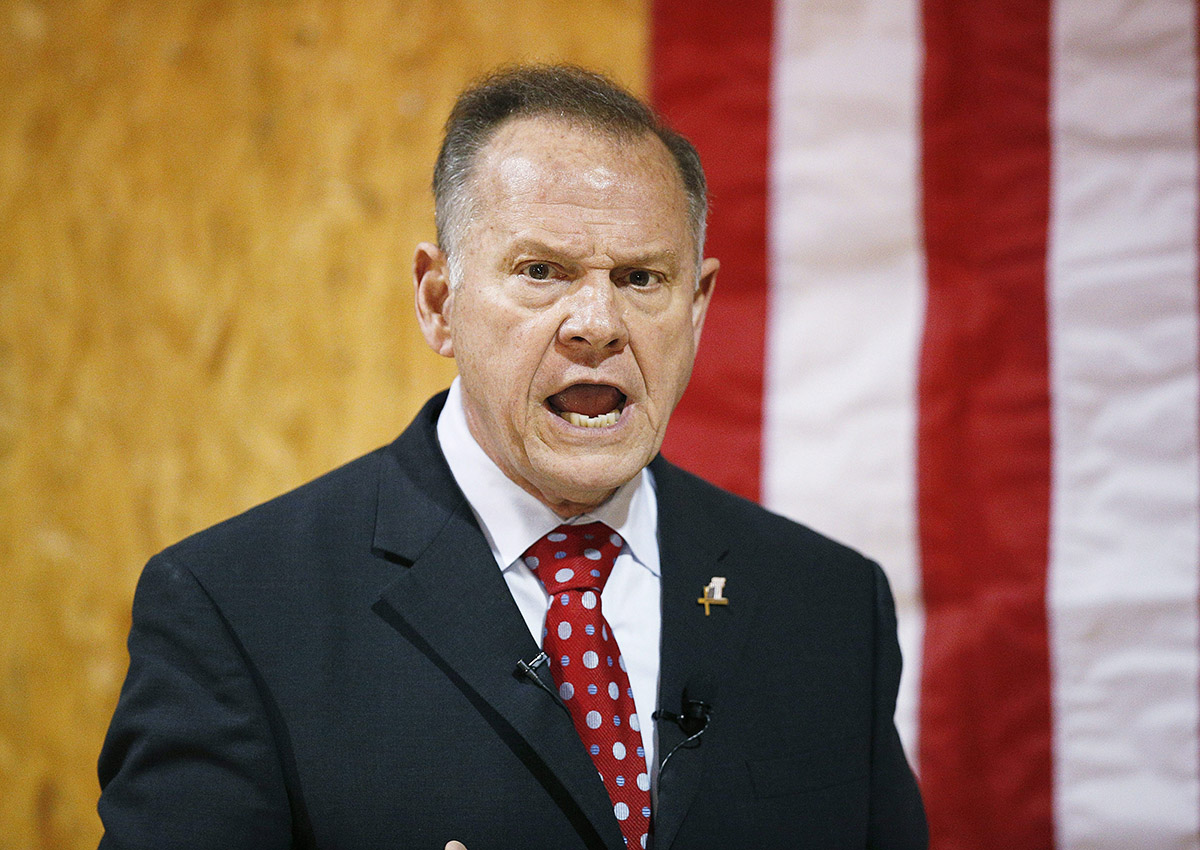Republican U.S. Senate candidate Roy Moore has been a rare sight on the traditional campaign trail in the days ahead of a critical U.S. Senate race. He’s appeared at only a handful of rallies in front of friendly audiences and steadfastly has shunned reporters from the mainstream media.

Moore’s past campaigns have never been heavy on public appearances, but his relative absence from the spotlight this time has been noticeable.
Moore has focused on meeting with small groups of supporters and an aggressive social media campaign out of camera range as he tries to win Tuesday’s election against Democrat Doug Jones – a contest that was supposed to be an easy GOP victory – until November, when a number of women stepped forward to accuse Moore of engaging in sexual misconduct when he was in his 30s and they were teenagers.
Moore has denied the allegations and refuses to back down.
Dodging the mainstream spotlight is classic Roy Moore, according to Alabama campaign consultant David Mowery. Moore did the same when he campaigned for Alabama Supreme Court chief justice in 2012, when he defeated Mowery’s client, Democrat Bob Vance.

Get daily National news
“We never knew where he was and then we’d get a picture from somebody showing us some church marquee saying, ’Judge Moore is here on Saturday,’” Mowery recalled. “He’s out there, he’s just with his base, and usually in small events.”
Moore’s stealth effort has left Jones resorting to mockery as the Democrat crisscrosses the state trying to pull an upset in Tuesday’s special election, buoyed by the possibility that enough Republicans will abandon the 70-year-old Moore in the wake of the allegations.
“Roy Moore is in hiding. He’s kind of like the groundhog. He comes out every so often to see if he can see his shadow,” Jones said Saturday in Selma during one of several stops for the Democrat this weekend.
Mowery said the temptation is to obsess too much over what Moore is doing.
“You lose the forest for the trees worrying over the opponent,” he said. “It wasn’t like we were competing over the same voters anyway.”
“We were going after the Chamber of Commerce, country club, First Methodist kind of Republicans … not the fundamentalists and the snake handlers. We were never going to get them anyway, and neither is Doug,” Mowery said.
Ben DuPre, a campaign spokesman, said Moore is not holding back.
“He’s talking to voters. We are getting the message out any way that we can. I know you are the old media and you get offended when we don’t talk to you, but we’ve got Twitter. We’ve got Facebook. He’s doing interviews. He’s doing radio.”
Moore’s campaign is actively pushing his narrative on social media and in press releases. He’s also drawing headlines with the help of President Donald Trump, who came to the Florida Panhandle on Friday night and has lined up a recorded telephone call from the president that will start being delivered to Alabama voters on Monday.
Moore has never been conventional. He has built a large following among some evangelical voters from two failed gambits: upholding a display of the Ten Commandments in a state building and trying to block same-sex marriage in Alabama. He was tossed from office in both instances.
Moore plans to close out his campaign Monday night with another large rally featuring former Trump campaign guru Stephen Bannon.
Bill Stewart, the former chairman of the political science department at the University of Alabama, said Moore appears to be banking on his evangelical base, as well as the state’s overwhelming tendency to vote Republican, to carry him to victory on Tuesday.
Republicans in Alabama tend to clear 60 percent of the vote — though Moore has struggled in his previous races to reach that number — and voters here haven’t elected a Democrat to the Senate since 1992.
Stewart said he can’t remember a candidate ever virtually “disappearing from public view” the way Moore has. Still, he said Moore has little to gain but “a lot to lose” by making a mistake.
“There may be a method in his madness,” Stewart said.














































Comments
Want to discuss? Please read our Commenting Policy first.